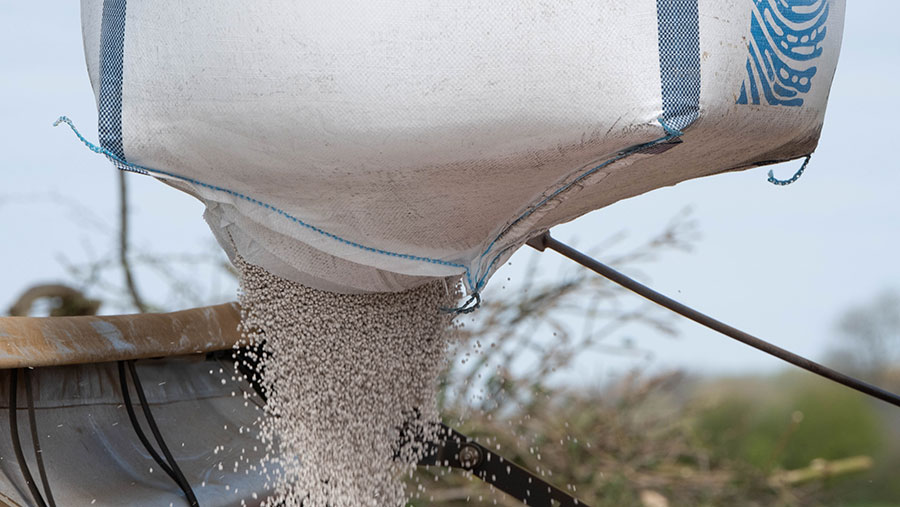Government failure to protect fertiliser market poses food security risk
 © Tim Scrivener
© Tim Scrivener A government failure to step in and protect the domestic production of nitrogen fertiliser and ammonia poses a major food security risk, MPs have warned.
Nitrogen fertiliser is used by UK farmers on 89% of crop area for tillage crops such as wheat, barley, potatoes and sugar beet and 59% of grass, but there is only one producer in the country – US-owned CF Fertilisers.
This company, which recently announced it would permanently close its Billingham site for producing ammonia, used to make fertiliser, only meets about 40% of UK need.
See also: Fertiliser market developments after disruption of 2022
The energy-intensive nature of fertiliser and ammonia production meant global markets were left reeling after the Russian invasion of Ukraine drove wholesale gas prices up.
In a new report on food security, MPs on the Environment, Food and Rural Affairs (Efra) select committee said: “Given the importance of nitrogen fertiliser to UK food production and security, the government should set out how it will ensure its continued production in the UK, including the resumption of ammonia production to help support CO2 supplies.
“Looking ahead, the government should take steps to support the increased production of nitrogen fertiliser in the UK, and in so doing examine the incentives offered by our competitors.”
These incentives include $29m (£22.6m) from the US Department of Agriculture to increase US-made fertiliser production and more flexibility for EU member states to offer up to €150m (£128.4m) support for fertiliser producers.
More broadly, the Efra committee report urged ministers to develop a suite of key food security indicators, covering both inputs and outputs, and set targets for each.
It also highlighted the importance of access to labour, noting that worker shortages had already led to some UK food production being moved overseas.
“The government must prioritise the country’s long-term food security ahead of other considerations to ensure the food supply chain has access to sufficient labour to allow it to realise its growth potential,” said the document.
